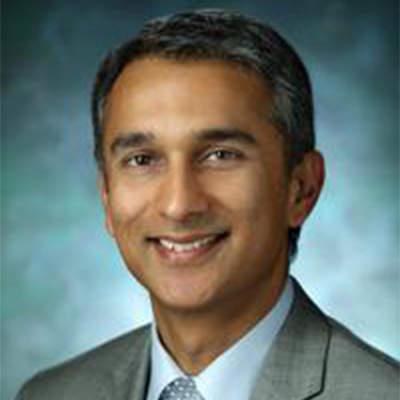Dr. Pathak directs the Laboratory for Image-based Systems Biology, which works at the interface of engineering, medicine, and design to develop new hardware, software and “wetware” tools for basic and translational applications in tissue engineering and cancer. For the past several years he has collaborated with Dr. Grayson to spearhead the new field of “image-informed biomanufacturing” for tissue engineering applications. These efforts have included the development of novel in vivo and ex vivo imaging tools to acquire data to “inform” the design and deployment of more efficacious biomaterials for eventual clinical translation. More recently, he is collaborating with Dr. Grayson and other investigators to harness imaging and sensing technologies in health and disease models for applications in the Digital Twin (DT) and Precision Medicine (PM) space. Dr. Pathak has a long track record of leveraging in vitro, ex vivo, and in vivo imaging techniques for clinical biomarker development for cancer and other diseases. This includes multiscale imaging technologies and time-resolved characterization of disease evolution in vivo, all of which are critical for establishing the feasibility of DTs in the preclinical space. Dr. Pathak and his team are also leveraging cutting-edge miniaturized microscopy methods to characterize neurovascular changes longitudinally in preclinical models of brain aging. These approaches represent the first time that changes in multiple physiological variables can be measured continuously in vivo, over the lifetime of the aging model. These nascent studies have the potential to revolutionize our understanding of aging and its effects on the brain and other tissues. Finally, Dr. Pathak and his team are leveraging imaging-based artificial intelligence (AI) approaches to generate predictive models of engraftment success and biomaterial efficacy in vivo. Collectively, the imaging and computational tools that Dr. Pathak and his team are developing are synergistic with all the “Pillars” and “Horizontals” proposed in TTEC’s strategic plan for “Adaptive Therapeutics”, which make him an excellent fit as an affiliate faculty member of our Center.

